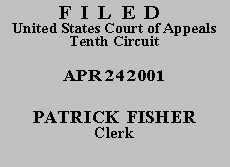

| TERRANCE REMALE THOMPSON,
Petitioner-Appellant, v. BOBBY BOONE, Respondent-Appellee. |
|
Petitioner Terrance Remale Thompson appeals from the district court's denial of his pro se habeas petition, filed pursuant to 28 U.S.C. § 2254. Under the provisions of the Antiterrorism and Effective Death Penalty Act, petitioner must obtain a certificate of appealability (COA) before his appeal can proceed before this court. See Slack v. McDaniel, 529 U.S. 473, 478 (2000); 28 U.S.C. § 2253(c)(1)(A). Because the district court denied petitioner's motion for a COA, petitioner must demonstrate "a substantial showing of the denial of a constitutional right" before a COA can issue. 28 U.S.C. § 2253(c)(2). To meet this standard, petitioner must show that "reasonable jurists would find the district court's assessment of the constitutional claims debatable or wrong." Slack, 529 U.S. at 483-84.
In his habeas application, petitioner asserted seven claims of error in connection with his criminal trial.(1) The district court dealt with six of the issues on the merits, including petitioner's claims of ineffective assistance of trial and appellate counsel. The district court ruled that one issue--alleged trial court error in instructing the jury on the presumption of innocence and the state's burden of proof--was procedurally barred, as did the state court on appeal from petitioner's post-conviction application. On appeal, petitioner contends that the state's procedural default was in error, based on state law, and challenges the state's post-conviction procedures in general. He also reargues the merits of five of the remaining claims, without reference to the district court's decision.(2) These claims include the following alleged trial court errors: 1) admitting evidence of other crimes in connection with petitioner; 2) allowing witness testimony regarding the nature of street crimes in 1991 compared to twenty years ago; 3) violating the trial court's own sequestration rule as to witnesses; 4) failing to declare a mistrial in light of allegedly improper statements made by the prosecutor; and petitioner further asserts 5) ineffective assistance of both trial and appellate counsel.
Our review of petitioner's appellate arguments, along with the record on appeal, including the trial transcript and decisions of the state appellate court and the district court, in light of the applicable law, convinces us that, for substantially the same reasons stated by the district court in its decision denying habeas relief, petitioner has not "made a substantial showing of the denial of a constitutional right." 28 U.S.C. § 2253(c)(2). Petitioner's request for a COA is DENIED and this appeal is DISMISSED.
Entered for the Court
Circuit Judge
*. This order and judgment is not binding precedent, except under the doctrines of law of the case, res judicata, and collateral estoppel. The court generally disfavors the citation of orders and judgments; nevertheless, an order and judgment may be cited under the terms and conditions of 10th Cir. R. 36.3.
1. Petitioner was convicted of first degree murder following the shooting death of Craig Foster in November of 1991.
2. Petitioner makes no argument on one issue presented to the district court: cumulative error resulting in a violation of his Fourteenth Amendment rights.